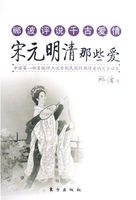Moreover, if a term be used in several senses, and it has been laid down that it is or that it is not an attribute of S, you should show your case of one of its several senses, if you cannot show it of both. This rule is to be observed in cases where the difference of meaning is undetected; for supposing this to be obvious, then the other man will object that the point which he himself questioned has not been discussed, but only the other point. This commonplace rule is convertible for purposes both of establishing and of overthrowing a view. For if we want to establish a statement, we shall show that in one sense the attribute belongs, if we cannot show it of both senses: whereas if we are overthrowing a statement, we shall show that in one sense the attribute does not belong, if we cannot show it of both senses. Of course, in overthrowing a statement there is no need to start the discussion by securing any admission, either when the statement asserts or when it denies the attribute universally: for if we show that in any case whatever the attribute does not belong, we shall have demolished the universal assertion of it, and likewise also if we show that it belongs in a single case, we shall demolish the universal denial of it. Whereas in establishing a statement we ought to secure a preliminary admission that if it belongs in any case whatever, it belongs universally, supposing this claim to be a plausible one. For it is not enough to discuss a single instance in order to show that an attribute belongs universally; e.g. to argue that if the soul of man be immortal, then every soul is immortal, so that a previous admission must be secured that if any soul whatever be immortal, then every soul is immortal. This is not to be done in every case, but only whenever we are not easily able to quote any single argument applying to all cases in common, as (e.g.) the geometrician can argue that the triangle has its angles equal to two right angles.
If, again, the variety of meanings of a term be obvious, distinguish how many meanings it has before proceeding either to demolish or to establish it: e.g. supposing 'the right' to mean 'the expedient' or 'the honourable', you should try either to establish or to demolish both deions of the subject in question; e.g. by showing that it is honourable and expedient, or that it is neither honourable nor expedient. Supposing, however, that it is impossible to show both, you should show the one, adding an indication that it is true in the one sense and not in the other. The same rule applies also when the number of senses into which it is divided is more than two.
Again, consider those expressions whose meanings are many, but differ not by way of ambiguity of a term, but in some other way: e.g. 'The science of many things is one': here 'many things' may mean the end and the means to that end, as (e.g.) medicine is the science both of producing health and of dieting; or they may be both of them ends, as the science of contraries is said to be the same (for of contraries the one is no more an end than the other); or again they may be an essential and an accidental attribute, as (e.g.) the essential fact that the triangle has its angles equal to two right angles, and the accidental fact that the equilateral figure has them so: for it is because of the accident of the equilateral triangle happening to be a triangle that we know that it has its angles equal to two right angles. If, then, it is not possible in any sense of the term that the science of many things should be the same, it clearly is altogether impossible that it should be so; or, if it is possible in some sense, then clearly it is possible. Distinguish as many meanings as are required: e.g. if we want to establish a view, we should bring forward all such meanings as admit that view and should divide them only into those meanings which also are required for the establishment of our case: whereas if we want to overthrow a view, we should bring forward all that do not admit that view, and leave the rest aside. We must deal also in these cases as well with any uncertainty about the number of meanings involved. Further, that one thing is, or is not, 'of' another should be established by means of the same commonplace rules; e.g. that a particular science is of a particular thing, treated either as an end or as a means to its end, or as accidentally connected with it; or again that it is not 'of' it in any of the aforesaid ways. The same rule holds true also of desire and all other terms that have more than one object. For the 'desire of X' may mean the desire of it as an end (e.g. the desire of health) or as a means to an end (e.g. the desire of being doctored), or as a thing desired accidentally, as, in the case of wine, the sweet-toothed person desires it not because it is wine but because it is sweet. For essentially he desires the sweet, and only accidentally the wine: for if it be dry, he no longer desires it.
His desire for it is therefore accidental. This rule is useful in dealing with relative terms: for cases of this kind are generally cases of relative terms.














